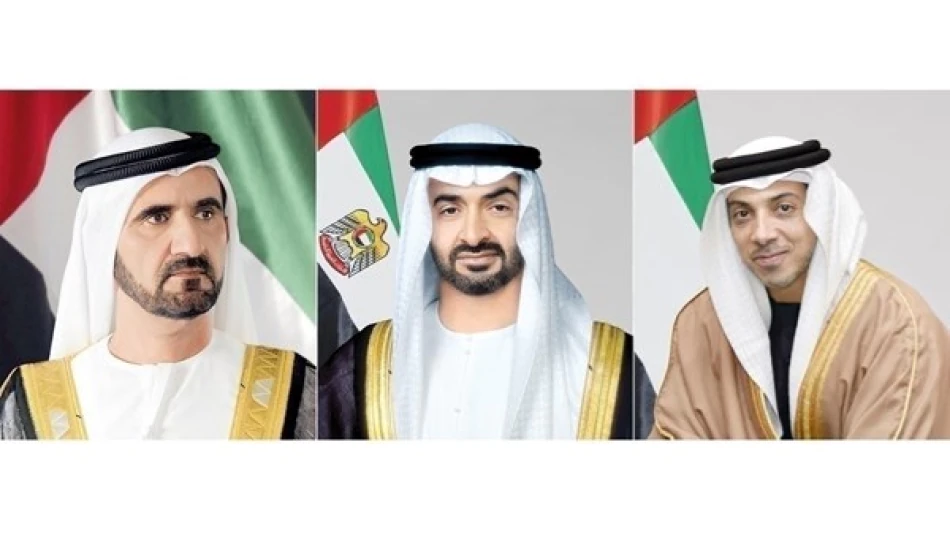
UAE Leaders Express Condolences to Russian President over Plane Crash Victims
UAE Leadership Extends Condolences to Russia Following Fatal Aircraft Crash
The United Arab Emirates' top leadership has sent formal condolences to Russian President Vladimir Putin following a deadly aircraft crash in Russia's Amur Province, highlighting the diplomatic ties between the two nations amid ongoing global tensions. The gesture underscores the UAE's continued engagement with Russia despite Western sanctions and geopolitical pressures.
High-Level Diplomatic Outreach
UAE President Sheikh Mohammed bin Zayed Al Nahyan dispatched a condolence telegram to President Putin regarding victims of the aircraft crash in the Tynda region of Amur Province. The formal expression of sympathy was echoed by other senior Emirati officials, including Vice President and Prime Minister Sheikh Mohammed bin Rashid Al Maktoum, who also serves as Dubai's ruler, and Deputy Prime Minister Sheikh Mansour bin Zayed Al Nahyan.
The coordinated response from multiple UAE leaders signals the importance placed on maintaining diplomatic protocols with Russia, even as many Western nations have scaled back official communications following the Ukraine conflict.
UAE-Russia Relations in Context
Balancing Act in Global Politics
The UAE's diplomatic outreach reflects its broader strategy of maintaining relationships across geopolitical divides. Unlike many Western allies, the Emirates has refused to impose sanctions on Russia and has instead positioned itself as a neutral mediator. This approach has allowed Abu Dhabi to continue energy cooperation and trade relationships with Moscow while preserving its strategic partnership with the United States.
Economic Implications
The sustained diplomatic engagement carries significant economic weight. Russia remains an important partner for the UAE in energy markets, with both nations coordinating within OPEC+ frameworks. Additionally, Dubai has emerged as a key hub for Russian businesses seeking alternatives to Western financial systems, with trade volumes between the countries reaching new highs in recent years.
For investors and market observers, the UAE's consistent diplomatic stance suggests continued stability in bilateral economic relationships, potentially offering opportunities in sectors ranging from energy to technology transfer.
Regional Diplomatic Strategy
The condolence messages demonstrate the UAE's commitment to what it terms "principled neutrality" – a foreign policy approach that prioritizes dialogue over isolation. This strategy has proven successful in other contexts, such as the Abraham Accords with Israel and ongoing mediation efforts in various regional conflicts.
By maintaining formal diplomatic courtesies with Russia, the UAE positions itself as a potential bridge between Moscow and the international community, a role that could prove valuable as global powers eventually seek pathways toward de-escalation and renewed cooperation.
Most Viewed News

 Layla Al Mansoori
Layla Al Mansoori






